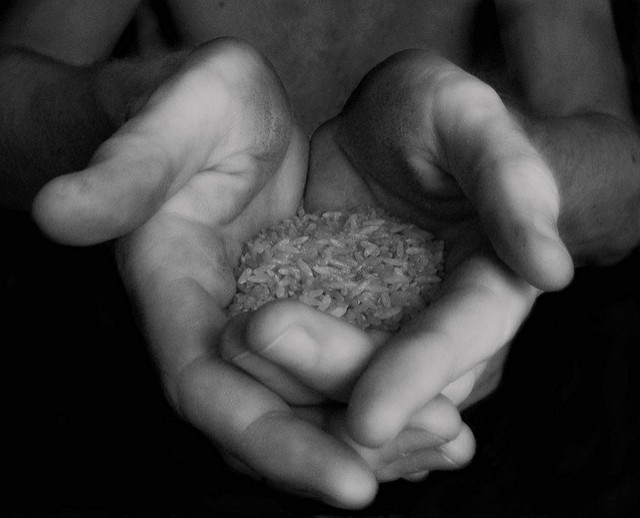
As a child, I always wondered if humans could have superpowers.
Why would they make so many cartoons about them if they weren’t real?
Two decades and a couple of soul searching adventures later, I was a twentysomething designer/artist/yoga instructor/healing practitioner sitting down to lunch with my parents—the scientists.
My father has a PhD in chemistry and my mother is a biochemist. They are both Palestinian and were born and raised as refugees; while they struggled, they were ultimately successful in creating a wonderful life for our family. Both came from the school of thought that without a higher education, we don’t stand a chance. We were taught that as Palestinians, education is essential for us to not just succeed, but survive.
I grew up kicking that system’s ass. I got good grades and liked learning—I still do. But I was also an artist, and most of the time I found my thoughts to be too abstract. At least, that is what I was told.
So, there I was, the abstract artist at lunch with her scientist parents. We were having rice that day, which is rather predictable considering it accompanies nearly every single Arabic dish. We were talking about energy and karma—topics we rarely discussed—so naturally my excitement was building. I shared a story about an experiment that showed up on my Facebook feed: “The Rice Experiment,” first conducted by Dr. Masaru Emoto, whose research was about the way words, thoughts, and emotions affect our reality on a molecular level.
I began describing how, according to the experiment, rice kept in three separate containers will react differently depending on what words it was being told over a certain period of time. All you need is rice and some patience.
Perhaps predictably, the response was laughter.
The laughter lasted for a while, and I found myself laughing too—mainly at how much they were laughing. It was contagious, but also covered a thin layer of frustration. Shortly after, I was met with something along the lines of: “Okay Rena, we’ve watched you do your thing. We get it. You’re the artsy yogi and all that. But would you please listen to yourself? Are you saying that the rice can hear you?! We can’t take this seriously…what’s next? Are you going to fly?”
To that, of course, I answered, “Maybe someday.”
A few minutes later, my father decided to take my story seriously. He suggested we do a controlled experiment following the instructions of Dr. Emoto. We were to separate the cooked rice in three sterilised containers, add water, seal them, and place them on a table, about 30 cm apart.
To one, we would say, “I love you.” To the other, we would say, “I hate you.” And we would ignore the third as a control sample—not even labeling it.
Every day, my family and I would pass by the rice, and to the first we would say aloud, “I love you precious rice, you’re so fluffy! I just want to eat you! Thank you for being so yummy.” Then, we’d laugh.
To the second one, “I hate you! You suck! You cause diabetes. You don’t really taste like anything.” Then, we’d laugh.
To the last one—what last one? More laughter.
Weeks passed and the laughs started to quiet down.
A few months went by and suddenly, there was no laughter.
What happened you ask? Let’s start with the controlled sample: the ignored rice. By far, this one had the most dramatic change. It formed a thick black/reddish layer that seeped from the top down into the rice. The “I hate you” rice, however, was different. It had developed spots of mold scattered throughout the rice and these spots grew larger as the weeks went by.
The most shocking result was the “I love you” rice. After months of being left out, it was still white.
Even though I was the one arguing for the validity of this experiment, insisting that it was real and that words and thoughts are energy, seeing it with my own eyes changed something in my core. And I believe all of us at home took something away from this.
Conducting this experiment was not just about observing facts. Each day, intentions were being formed in our hearts and projected onto the rice. Each day, our concept of reality was being challenged. Witnessing the results had a transformative effect on our consciousness. There was a moment where the interconnectedness of everything was palpable. The rice, me, my family, the water, the earth with everyone and everything in it—it was all clearly linked, and that felt daunting.
There is a sense of responsibility that comes with this connection. Being kind and loving started to seem more like an act of saving the world rather than just good manners. Think of the impact our thoughts and words can have on our kids and loved ones, not to mention ourselves! Think of the impact kindness can have in the world.
I encourage everyone to try this experiment. Reading about it might be interesting or even fascinating, but seeing it is an extraordinary experience. I carried those rice containers around and showed them to everyone I knew, even my coworkers.
At the time, I worked at the world’s largest liquefied natural gas exporter, based in Qatar. Much like that fateful family lunch, my job was a place full of scientists. Their feedback was overwhelmingly positive. And many of them tried the experiment using different words, languages, and even prayers. It can all potentially work. What matters is the quality of energy being projected onto each of the rice samples—the intention in our hearts.
These were the results from my own experiment, and others have had varying results. I invite you to try this experiment, especially if you are a skeptic; if you do, please share your results in the comments. My only advice is to feel the words as you say them. Believe them.
An important thing to note here is that neglect had a worse effect on the rice than abuse. Even more importantly though: love and kindness are powerful. The best part of this experiment was that the child in me, the one who always wondered if humans could have superpowers, finally has her answer.
And to you reading this, “I love you.”
~
Relephant:
How Quantum Physics Helps me Appreciate the Power of my Mind.
~
Author: Rena Chehayber
Image: Barcelonya/Flickr; @elephantjournal/Instagram
Editor: Nicole Cameron
Copy Editor: Yoli Ramazzina


 Share on bsky
Share on bsky




Read 0 comments and reply